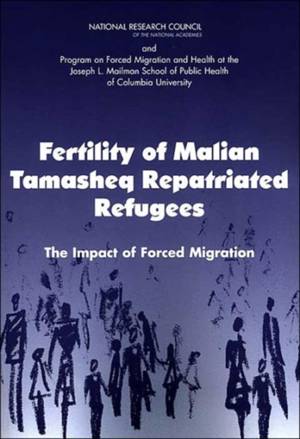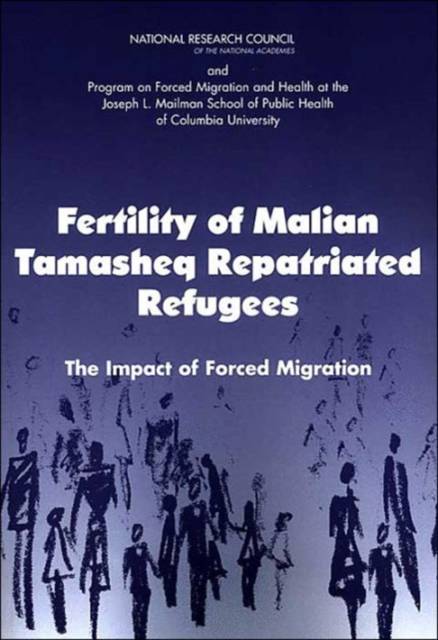
- Afhalen na 1 uur in een winkel met voorraad
- Gratis thuislevering in België vanaf € 30
- Ruim aanbod met 7 miljoen producten
- Afhalen na 1 uur in een winkel met voorraad
- Gratis thuislevering in België vanaf € 30
- Ruim aanbod met 7 miljoen producten
Fertility of Malian Tamasheq Repatriated Refugees
The Impact of Forced Migration
Program on Forced Migration and Health at the Mailman School of, National Research Council, Committee on Population, Roundtable on the Demography of Forced Migration, Sara RandallOmschrijving
In Africa many of the refugee flows in recent years have had a strong ethnic dimension; interethnic conflict or conflict between politically powerful groups with minority populations is often an important aspect of who is forced to flee. In most cases the origins of conflict occur in a multiethnic environment, and repatriation (if it happens) occurs in that multiethnic context, with implications for subsequent relationships between the groups in terms of political, economic, and numeric power. As the primary source of recruitment to a population, fertility is an essential component of postconflict restructuring. The disruption of fertility during the disorder of forced migration can itself be seen as part of the disintegration of society and identity; the impact of conflict and flight on reproduction may be an important indicator of the degree of crisis faced by the population. Postcrisis fertility and changes from the reproductive regime prior to the forced migration indicate not only how the population has responded to the multiplicity of changes and traumas, but also its ability to adapt and manipulate its new sociopolitical position. This report focuses on the specific experience of a single persecuted population whose sociopolitical history, along with their underlying marital and fertility regimes, will inevitably condition responses to conflict.
Specificaties
Betrokkenen
- Auteur(s):
- Uitgeverij:
Inhoud
- Aantal bladzijden:
- 62
- Taal:
- Engels
Eigenschappen
- Productcode (EAN):
- 9780309092388
- Verschijningsdatum:
- 2/08/2004
- Uitvoering:
- Paperback
- Formaat:
- Trade paperback (VS)
- Afmetingen:
- 152 mm x 229 mm

Alleen bij Standaard Boekhandel
Beoordelingen
We publiceren alleen reviews die voldoen aan de voorwaarden voor reviews. Bekijk onze voorwaarden voor reviews.











